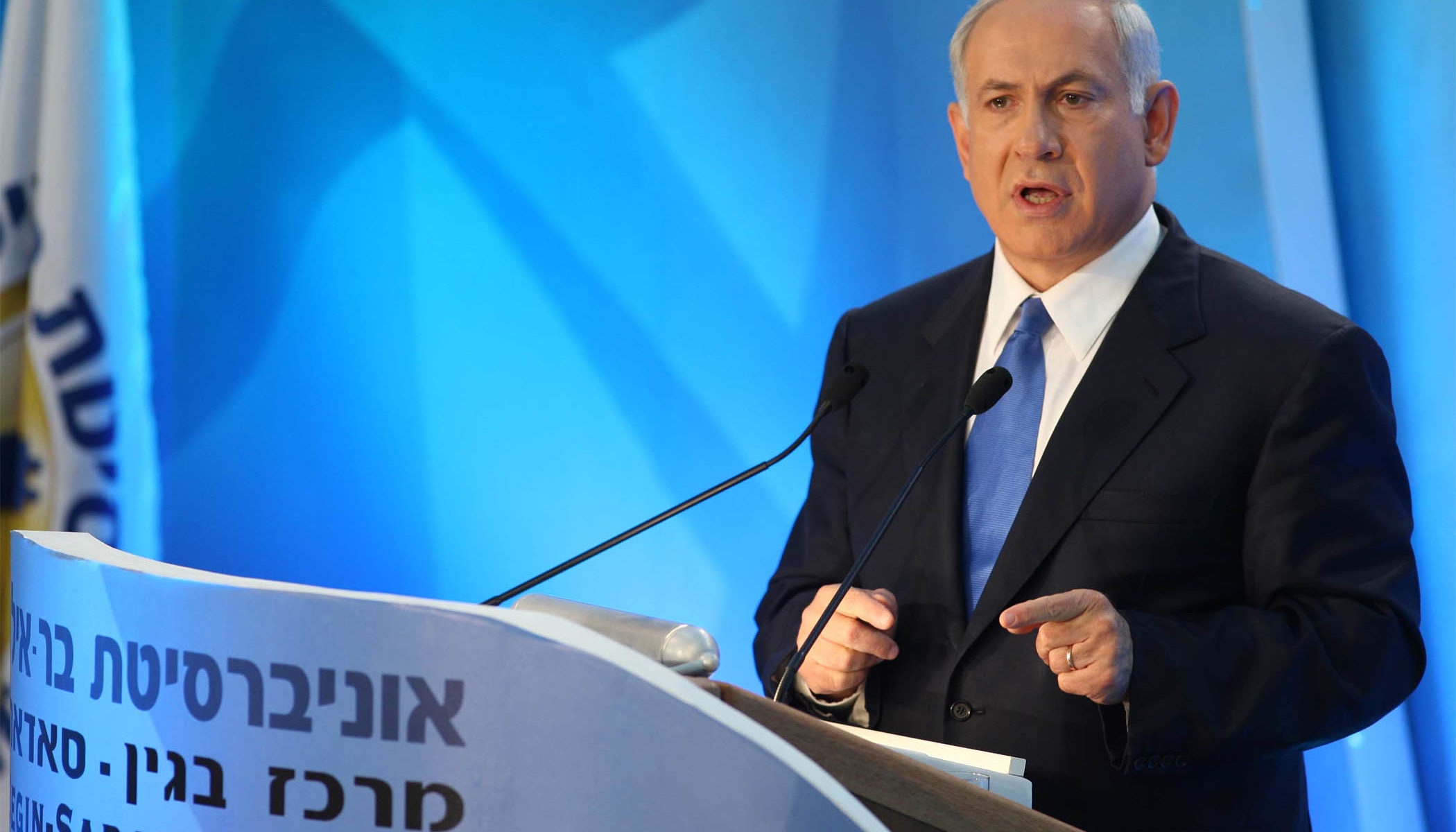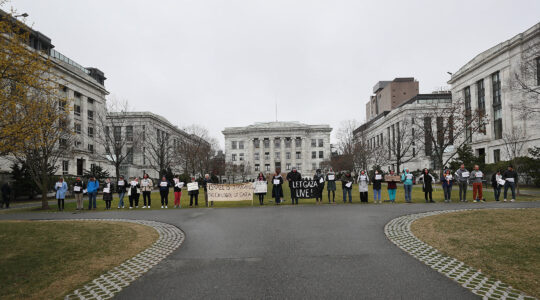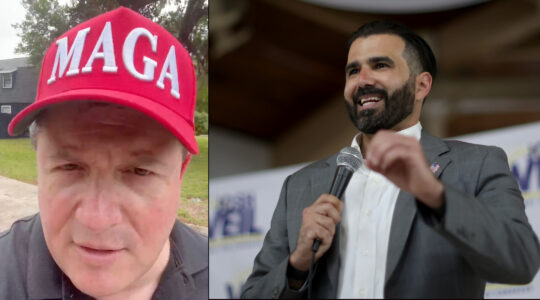WASHINGTON (JTA) — In accepting the notion of a demilitarized Palestinian state, Benjamin Netanyahu in his speech Sunday adopted what is essentially the position of a large swath of Israelis and American Jewish groups.
This week, Israelis and many Jewish groups on the left and right were applauding the Israeli prime minister for his stance.
Netanyahu’s comments on Palestinian statehood also pleased the White House, with President Obama calling the speech “positive movement.”
With concerns running high about an escalating diplomatic rift between Washington and Jerusalem, some Jewish organizational leaders expressed hope that Netanyahu’s shift would reduce tensions between Israel and the United States over Jewish settlements in the West Bank.
“The anxiety level is down for now,” Anti-Defamation League national director Abraham Foxman said.
But a number of left-wing groups said that while Netanyahu’s acceptance of two states was a significant moment, they were disappointed by his failure to alter his position on Jewish settlement growth. And on the right, some categorized Netanyahu’s speech as a concession.
In what was billed as a major policy address, Netanyahu said at Bar-Ilan University that he would support a Palestinian state as long as the state was demilitarized and the Palestinians recognized Israel as a Jewish state. He also called for immediate negotiations with the Palestinians and the rest of the Arab world without preconditions.
Netanyahu went further in a conference call Monday with members of the Conference of Presidents of Major American Jewish Organizations, using the catch phrase “two states for two peoples” and saying it was possible to have effective security arrangements to accompany a Palestinian state.
“There were a lot of conditions,” Obama said Monday to reporters, “and obviously working through the conditions on Israel’s side for security, as well as the Palestinian side for sovereignty and territorial integrity and the capacity to have a functioning, prosperous state, that’s exactly what negotiations are supposed to be about. But what we’re seeing is at least the possibility that we can restart serious talks.”
Jewish groups across the spectrum, including the major Orthodox, Conservative and Reform organizations, praised Netanyahu’s new position, as did the American Israel Public Affairs Committee.
Netanyahu “effectively challenged proponents of a Palestinian state to understand that Israel will not only accept, but even assist in, the creation of a Palestinian state so long as doing so does not and cannot threaten the physical security and Jewish integrity of Israel,” the Orthodox Union said in a statement.
J Street executive director Jeremy Ben-Ami said that seeing the head of the “most center-right government in history” recognize a two-state solution was “a momentous development” and “an important sea change.”
In Israel, 71 percent of those interviewed in a Ha’aretz-Dialog poll said Netanuyahu said the right things in his speech.
There is general agreement in the American Jewish community that a Palestinian state should not be permitted to have a military. The principle is part of the Geneva Initiative, an unofficial peace proposal put forth in 2003 by Israeli and Palestinian politicians and promoted since by a host of left-wing groups.
The key issue is how to balance demilitarization with the need for a Palestinian police force to have weapons to keep domestic order, Ben-Ami said, and that will have to be worked out in negotiations.
Ori Nir, the spokesman for Americans for Peace Now, said Netanyahu’s endorsement of the idea of a Palestinian state was significant, but not enough.
“I didn’t see any give on his part” on settlements, Nir said.
Brit Tzedek v’Shalom, which lobbies for a two-state solution to the conflict, said Netanyahu’s demand that Palestinians first recognize Israel as a Jewish state is an unnecessary stumbling block.
“Jews don’t need someone else to define our state,” said Diane Balser, the organization’s executive director. “We’ve defined it as a Jewish state.”
But Malcolm Hoenlein, the executive vice chairman of the Presidents Conference, called it a fundamental principle and said no peace agreement can be truly successful if “your partner doesn’t accept you.”
“They have to overcome this Rubicon,” Hoenlein said.
In an indication that some on the right saw in Netanyahu’s speech a negative development rather than a positive one, the Zionist Organization of America condemned the address as concessionary.
“Israel has made yet another one-sided concession by publicly accepting a Palestinian state, with qualified exceptions, and received nothing in return for this major concession,” ZOA president Morton Klein said. “The speech makes it look like Israel is caving into pressure.”
A number of Jewish organizational officials interpreted the Obama administration’s lack of focus on Netanyahu’s refusal Sunday to commit to a settlement freeze as an indication that the White House wants to take the spotlight off that issue as negotiations are revived.
Initial White House statements on the speech didn’t mention settlements at all. On Monday, Obama reiterated his call for a “cessation of settlements” but didn’t comment on that portion of Netanyahu’s speech.
“I think the parties on the ground understand that if you have a continuation of settlements that in past agreements have been categorized as illegal, that’s going to be an impediment to progress,” Obama said.
The Obama administration wanted to emphasize the positive, said Sam Lewis, a former U.S. ambassador to Israel and a senior policy adviser to the Israel Policy Forum.
Netanyahu “said enough to give Obama and Mitchell” — U.S. special Middle East enjoy George Mitchell — “some material to work with in pushing forward,” Lewis said.
JTA has documented Jewish history in real-time for over a century. Keep our journalism strong by joining us in supporting independent, award-winning reporting.






